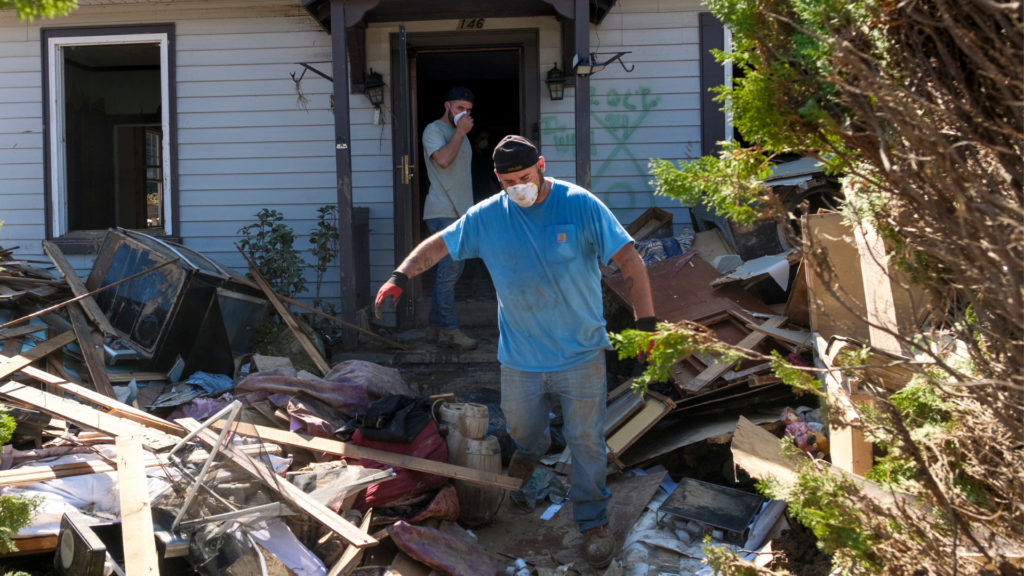The Stormy Election
The upcoming election faces significant challenges due to the devastating impact of hurricanes, particularly Hurricane Helene and the impending Hurricane Milton. The storms have caused massive displacement in key states such as North Carolina and Georgia, both of which are crucial for electoral outcomes. Local officials are struggling to maintain confidence amidst recovery efforts, grappling with logistical nightmares that could disrupt the voting process. Despite early indications that essential election equipment remains intact, the reality of nearly 20% of voters in North Carolina being affected by the storms complicates the situation. With fourteen county election offices temporarily closed, concerns grow about polling places lacking power or necessary resources on Election Day.
In Florida, Governor Ron DeSantis previously made accommodations in the wake of Hurricane Ian, allowing some counties to shift polling places and extend early voting. Similar measures may be needed again, but a delicate balance exists given the Florida Legislature’s cautious stance on voting regulations post-2020. The fear of voter fraud allegations complicates efforts to mitigate the effects of the storms on the election, as any attempts to ease the voting process could be viewed through a lens of distrust. This brings into play the potential for conspiracy theories to surface, creating an environment where voter confidence could be at risk.
Furthermore, the Federal Emergency Management Agency (FEMA) plays a crucial role in recovery efforts, but perceptions of its competence may influence the election as well. Controversial claims from political figures regarding FEMA’s handling of disaster relief could sway public opinion. Disputes over the agency’s actions, such as the alleged blocking of donations or mismanagement of resources, have the potential to further muddy the waters of public sentiment and trust in government institutions. Elon Musk’s engagement with disaster recovery efforts adds another layer to this narrative, although claims surrounding FEMA’s interventions remain contentious and often lack concrete evidence.
As the situation progresses, the impact of these hurricanes goes beyond immediate recovery needs. The electoral landscape is inevitably affected by the larger social and political contexts arising from disaster response. Voter registration, absentee ballots, and polling accessibility are all at risk as communities struggle to regain normalcy. The counties severely affected face logistical hurdles that local election officials aim to address, but the efficacy of these solutions remains uncertain in the face of competing narratives that may seek to delegitimize electoral processes.
In addition to the physical implications of the hurricanes on voters and polling sites, social divisions and tensions in political discourse could also rise. Political actors may exploit the situation to bolster their narratives, intensifying partisan divides that already mark the current landscape. The intersection of disaster recovery with electoral politics invites scrutiny over the intentions and effectiveness of governmental response, and the public’s perception of those efforts could influence voter turnout and sentiment.
Ultimately, the hurricanes not only pose logistical and operational challenges but also amplify the deeper societal and political dynamics that shape electoral participation. Communities affected by the storms will be wrestling with their immediate recovery and adapting to the shifting realities of their voting rights and capabilities. As they navigate these complexities, the outcome of the election hangs precariously in the balance, influenced by both the tangible impacts of the disasters and the underlying narratives that emerge amidst the chaos. The coming weeks are poised to reveal how these intertwined elements will play out as citizens seek to assert their voices during a pivotal moment in their recovery and political future.
Share this content:












Post Comment